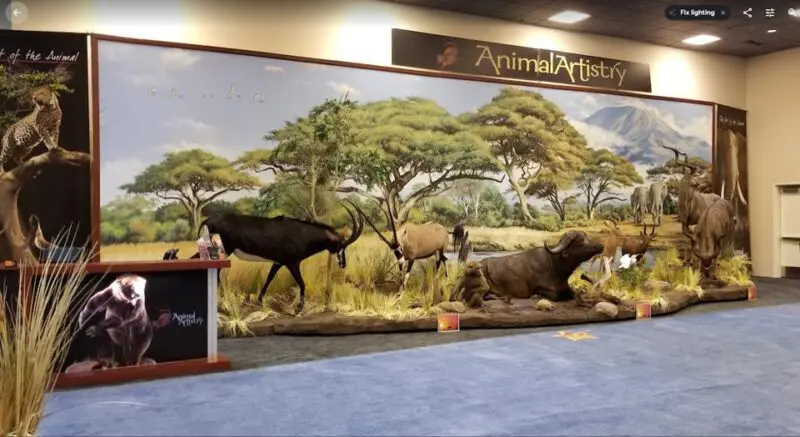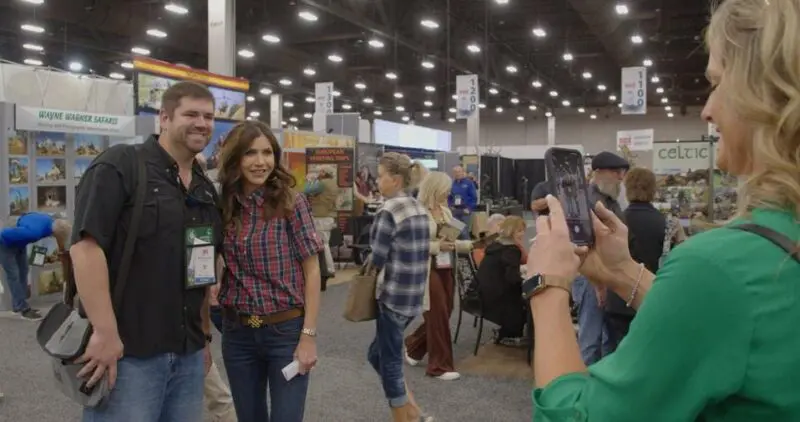If there’s a Super Bowl of the hunting world, it’s the annual Safari Club International convention.
SCI is comprised of more than 50,000 members with 180 local chapters and affiliates across the globe. Come February 22, tens of thousands of hunters, guides, outfitters, gunmakers, wildlife artists, titans of industry, political leaders, celebrities, and average Joes will descend on Nashville, Tennessee, to celebrate their position atop the food chain and their shared love of all things hunting.
In the process, they’ll raise millions of dollars for conservation efforts that extend to the far corners of the globe where dollars from foreign hunters have given value to hundreds of game species and protected their habitats in the process.
History, on the other hand, is rife with examples of what happens when such economic incentives are removed because of hunting closures. Kenya is the most notable example of what follows hunting bans. Regulated hunting for elephants was ended there in 1973 and the vast herds were subsequently slaughtered en masse by poachers who no longer contended with hunter-funded anti-poaching teams. Wildlife disappears from the landscape as poachers snare, shoot, and poison anything that provides meat, threatens their livestock, and crops, or brings currency on the black market.

A spectacular wildlife scene brought to life by Artworks Taxidermy. ANIMAL ARTISTRY
“The US is the source of the highest number of hunters visiting Tanzania,” says Elsie Kanza, an American-educated economist who serves as Tanzania’s ambassador to the U.S. “Hunting plays an important role in the world of conservation by sustaining our conserved areas which amount to about one-third of our entire country. This is done through a combination of providing anti-poaching funding and managing game populations so that we can have a balanced ecosystem which is critical to sustaining these world heritage destinations.”
A person may not like the act of hunting, but there is no sustainable way forward for many creatures great and small without it—especially across the African continent. The millions of dollars, pounds, and euros paid by American and other international hunters sustain a management system of carefully regulated hunting that serves as an opposing force to the indiscriminate killing of wildlife at the hands of meat, ivory, and rhino poachers, many of whom serve masters in Southeast Asia, forever the global hub for the illicit wildlife trade.
If not for hunters, species like the mountain nyala, a large spiral horned antelope found in the Ethiopian highlands, would have vanished decades ago. It’s not simply the money provided by hunters, but it’s the voice that they bring through groups like Safari Club International that echoes from Washington D.C. to Addis Ababa and other foreign capitals which advances science- based wildlife management on landscapes forever threatened by human encroachment and worse. The premise is founded in the simple fact that wildlife that provides value to people will endure. Those without such value—as the world has so commonly seen—are frequently sacrificed for other priorities.

Over 20 auctions at this year’s SCI Convention will help generate funds to support hunter advocacy as well as the SCI Foundation’s conservation and education programs. SAFARI CLUB INTERNATIONAL
The hunters who attend the SCI convention know these truths, despite the unwillingness of much of the mainstream media to acknowledge such realities. SCI and hunters everywhere are continually engaged in fighting one of the great mis- information campaigns of our time that is aided and abetted by a media largely content to play along with the narratives of animal rights groups whose record of conserving wildlife have been abysmal. That is, animal rights organizations have proven skillful in using emotionally charged visuals and rhetoric to raise money but their solutions—trophy import bans, hunting closures, and the like—have been death sentences to scores of species around the globe.
In a couple of weeks, leaders of many African nations, state and federal conservation officials, biologists, university wildlife researchers, and philanthropists will join the thousands of other guests at the SCI convention at Nashville’s Music City Center and will simply enjoy a remarkable collection of people, events, speakers, entertainers, artisans, craftsmen, and others in righteously celebrating their lifestyle.
As Teddy Roosevelt, whose force of intellect and conviction, made him among America’s most consequential Presidents, wrote more than a generation ago, “In a civilized and cultivated country wild animals only continue to exist at all when preserved by sportsmen. The excellent people who protest against all hunting, and consider sportsmen the enemies of wildlife, are ignorant of the fact that the genuine sportsman is the most important factor in keeping the larger and more valuable wildlife creatures from total extermination.”

Celebrities and politicians frequent the annual convention, such as South Dakota Governor Kristi Noem. SAFARI CLUB INTERNATIONAL
That is a reality that endures today and extends across the globe. SCI, its members and supporters, have been key in helping create a firewall between enduring wildlife populations and annihilation of species at the hands of poachers, development, and greed. SCI’s staff and volunteers who are on the front lines of these global debates are part of the line-up of speakers that offer yet another facet of the Nashville event, equipping their members with informed arguments in a natural world awash in hyperbole.
Wander the endless aisles of the convention and you’ll find paintings and bronzes from the world’s most talented wildlife artists. There also will be immaculate firearms from the planet’s greatest gunmakers that are the result of thousands of hours of work by master engravers, the guns representing exquisite pieces of sporting art. Taxidermy displays here surpass anything you’ll see in America’s top natural history museums. Moreover, bespoke home furnishings and accoutrement that reinforce the outdoor lifestyle of so many patrons will be on display. Auctions for trips, gear, and custom goods are another mainstay of this convention. Finally, guides, outfitters, and professional hunters from some of the most remote regions of our planet will be ready to share what is special about their places, wildlife, and the experiences they offer.
Visit the convention and subsequently travel to the world’s great wildernesses and you will become a part of a growing global network of hunters and advocates who have seen first- hand the magic of wild places and creatures whose fate often hinges on support provided by hunters.
For many, that’s reason enough to be a part of the greatest hunting and conservation show on Earth.
 The world of sporting literature has a new classic from one of the planet’s most widely traveled hunters. Call Time…The World of Wingshooting with the largest outdoor TV producer in history, is a book and film production more than 30 years in the making. Author and Executive Producer Chris Dorsey, along with a team of the world’s best sporting life photographers and cinematographers, embarked on expeditions to distant corners of the globe to create an indelible portrait of wingshooting. Buy Now
The world of sporting literature has a new classic from one of the planet’s most widely traveled hunters. Call Time…The World of Wingshooting with the largest outdoor TV producer in history, is a book and film production more than 30 years in the making. Author and Executive Producer Chris Dorsey, along with a team of the world’s best sporting life photographers and cinematographers, embarked on expeditions to distant corners of the globe to create an indelible portrait of wingshooting. Buy Now




